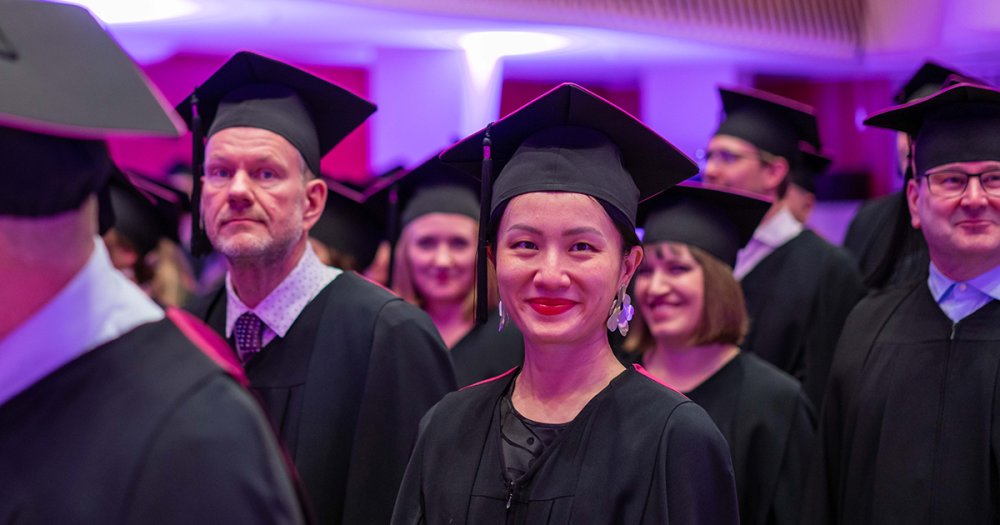Data, Analytics, and AI for Professionals
Learning Path for Building Expertise and In-Depth Understanding in Leveraging Data and AI-Driven Solutions
Do you want to sharpen your skills in advancing data utilization and AI initiatives? How can your organization stay ahead by effectively using data and AI? What are the current AI technologies, and how can they be developed and deployed for impact?
The Data, Analytics, and AI for Professionals (DAAP) program offers you a solid foundation for understanding and addressing business opportunities and challenges related to AI and data analytics. It supports organizations and individuals in adopting and applying new technologies by providing the skills needed to assess, select, and develop AI-driven solutions.
The Data, Analytics, and AI for Professionals program is taught by leading instructors and experts from Aalto University, the University of Helsinki, the Finnish Center for Artificial Intelligence (FCAI), and the most advanced companies in the field. The program combines the latest research knowledge and applied learning through different real-life examples and practical assignments. The modular structure of the program allows participants to study interesting topics at their own pace.
The program is offered in cooperation with the Finnish Center for Artificial Intelligence (FCAI).
18 ECTS credits can be transferred from this program to the Aalto Executive MBA or Aalto MBA program.
By completing this program, you will be eligible for alumni status and become part of Aalto EE's global alumni community. The alumni community offers valuable benefits that support your professional development and networking:
- Invitations to exclusive alumni events and networking opportunities
- An alumni newsletter that brings together the most important news, events, and content
- The opportunity to participate in most of our programs at a special fee
The DAAP program is taught by leading instructors and experts from Aalto University, the University of Helsinki, the Finnish Center for Artificial Intelligence (FCAI), and the most advanced companies in the field.
We have gathered together our comprehensive experience and the best trainers and content from our popular data, analytics, and AI programs such as the Diploma in Artificial Intelligence. The program combines the latest research knowledge and applied learning through different real-life examples and practical assignments.
Build your personalized learning path and complete your studies at your own pace. We offer interesting modules that help you deepen your knowledge of AI. The module selection is updated continuously.
Benefits
The program builds competencies for the future. You can select from four individual modules that each focus on different aspects of AI, data, and analytics. Our top-class instructors guarantee an impactful learning experience that you and your organization will benefit from.
For
The Data, Analytics, and AI for Professionals program is suitable for anyone who needs a deep understanding and skills to apply data analytics and AI technology.
The program is well-suited, for example, for
- IT specialists, managers, and directors;
- analysts;
- business development leaders and managers;
- HR professionals;
- product managers;
- cloud engineers;
- programmers and developers; and
- engineers from different fields.
Content and Schedule
The Data, Analytics, and AI for Professionals learning path has a modular structure, consisting of four modules. Each of the modules is held once a year, and you can study modules flexibly and complete the number of modules you need.
The topics include generative AI, data strategy, AI technologies and applications, and ethical questions related to data and AI. The studies include both intensive contact learning and practical case examples. Independent assignments complement the studies and allow you to apply your learning in practice.
Modules
Instructors

Teemu Roos
Teemu Roos is a Professor at the Department of Computer Science, University of Helsinki.
Roos' research interests include the theory and applications of artificial intelligence, machine learning, and data science. He also teaches introductory courses on these topics with a total of up to 500 students annually. He has developed applications of AI in areas such as mobile computing, genomics, epidemiology, quantum physics, and digital humanities.
Teemu Roos received a Ph.D. in computer science from the University of Helsinki in 2007.

Laura Ruotsalainen
Laura Ruotsalainen is an Associate Professor of Spatiotemporal Data Analysis for Sustainability Science at the Department of Computer Science at the University of Helsinki.
Her current research interests include the development of computer vision, estimation and machine learning algorithms for creating and using accurate and reliable spatiotemporal data, namely navigation data, especially for the development of autonomous systems enabling sustainable smart cities. For years, she has been teaching courses and supervising research on navigation at the Aalto University and the University of Helsinki and more recently also a course on Computer Vision at the University of Helsinki.

Marko Turpeinen
Marko Turpeinen is an Adjunct Professor at Aalto University School of Science.
Turpeinen is also the founder and CEO of a data-sharing company called 1001 Lakes.
He was previously the Finnish Node Director of EIT Digital, a Knowledge and Innovation Community of the European Institute of Innovation and Technology and a Professor in Media Technology at The Royal Institute of Technology (KTH) in Stockholm. He has extensive industrial experience in the media industry, as between 1996 and 2005 he worked in various executive positions at Alma Media Corporation, a Finnish media company.
His current academic research addresses issues in customized media content, a human-centric approach to personal data, and the role of AI and algorithmic power in networked society. He has a Doctor of Technology Degree in Computer Science from Helsinki University of Technology (now Aalto University) and a Master of Science Degree in Media Arts and Sciences from Massachusetts Institute of Technology (MIT).

Antti Ukkonen
Antti Ukkonen is a computer scientist and educator with 20+ years of R&D experience from both private and public sector organizations.
At present Antti is an independent consultant advising companies with AI projects. Previously he was the Chief Product Officer at Speechly, a venture funded startup acquired by Roblox Inc in September 2023. Prior to this he was an Academy Research Fellow at University of Helsinki. He has also worked at the Finnish Institute for Occupational Health, Aalto university, as well as Yahoo! Research. Antti holds a doctoral degree from Aalto University (2008), and is an Adjunct Professor of Data Science at University of Helsinki, Department of Computer Science.

Jukka K. Nurminen
Jukka K. Nurminen is a Professor of Computer Science at the University of Helsinki.
He has worked extensively on software research in the telecom industry at Nokia Research Center, in academia at Aalto University, and in applied research at VTT. His key research contributions are on energy-efficient software, mobile peer-to-peer networking, and cloud solutions but his experience ranges widely from applied optimization to AI, from network planning tools to mobile apps, and from software project management to tens of patented inventions. He received his MSc degree in 1986 and PhD degree in 2003 from Helsinki University of Technology (now Aalto University) in applied mathematics. Currently, his main interests are in the engineering of machine learning systems, fair and reliable operation of AI, and software development for quantum computers.
Program Fee and Registration
Program Fee
The fee for the Data, Analytics, and AI for Professionals learning path:
- 1 module: € 3,300 € (+ VAT)
- 2 modules: € 5,700 (+ VAT)
- 3 modules: € 7,950 (+ VAT)
- 4 modules: € 9,950 (+ VAT)
As an alum, you can participate in our programs at a unique alumni fee (15% off the standard fee). Check the programs included and if you're eligible for the benefit.
Registration
Register at the latest two weeks before the module starts.
When you add one module to your order, you will be automatically redirected to the order form. If you would like to add other modules to your order, please return to this page and select the additional modules you wish to include.

















